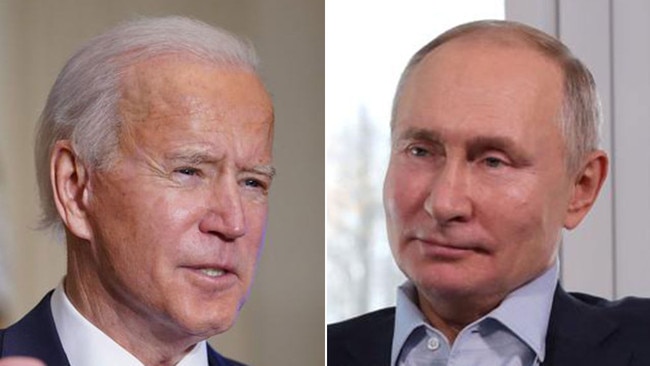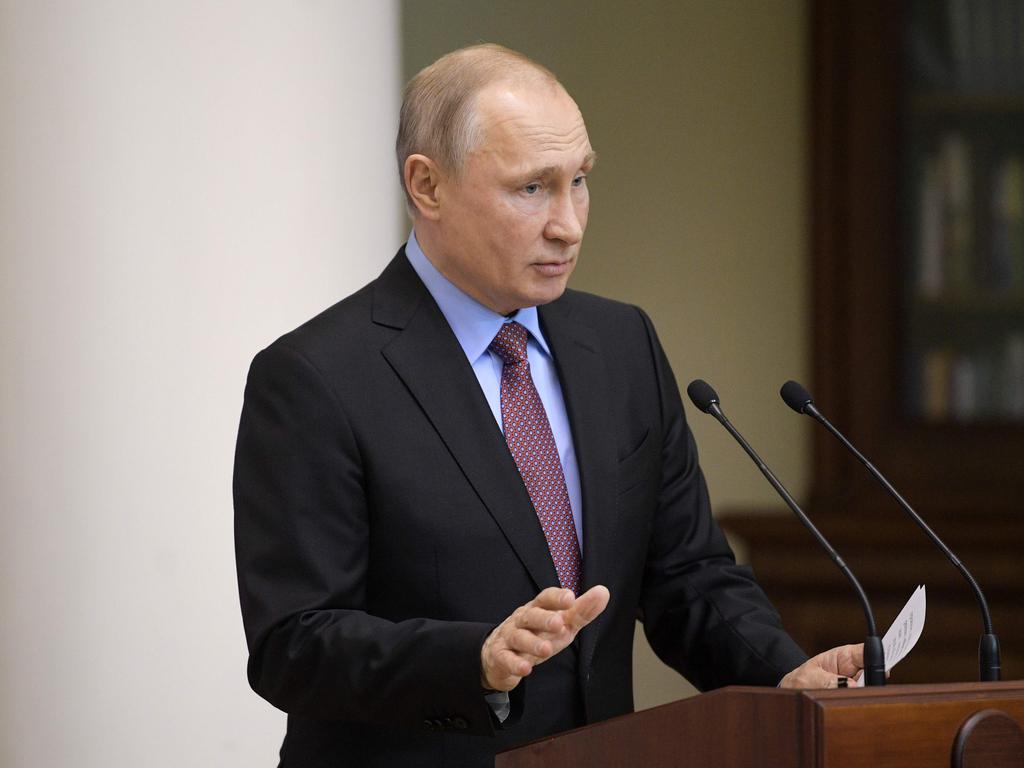Come clean on Navalny: Biden challenges Putin in first presidential phone call
In his first phone call with Vladimir Putin, US President Joe Biden pulled no punches over the poisoning of opposition activist.

President Biden challenged President Putin on Tuesday over the poisoning of the opposition activist Alexei Navalny in his first phone call with his Russian counterpart since taking office
He also expressed “strong support for Ukraine’s sovereignty” in the face of continued aggression from Moscow, as well as concern over reports that Russia had placed bounties on American troops serving in Afghanistan. He also raised evidence that Russia interfered in US elections and conducted a massive cyberespionage campaign against the American government.
“His intention was to make clear that the United States will act firmly in defence of our national interests in response to malign actions by Russia,” the White House press secretary Jen Psaki said.
Mr Navalny was arrested on January 17 on his return from Germany, where he had been recovering from novichok poisoning blamed on the FSB security service.
Mr Biden’s blunt intervention represented a sharp break from Donald Trump’s reluctance to criticise Mr Putin, and from other recent American presidents who have set out to achieve a “reset” in relations with the Kremlin.
The call took place on a day when Mr Biden had intended to place the fight against systemic racism at the centre of his administration’s ambitions, an approach that has encouraged civil rights advocates but drawn criticism from conservatives.
“America has never lived up to its founding promise of equality for all, but we’ve never stopped trying,” Mr Biden tweeted. He was expected to sign four executive orders last night (Tuesday) to advance “racial equity for Americans who have been underserved and left behind”.
In his inaugural address he vowed to defeat “white supremacy”. Hours later he signed an executive order committing his government to the pursuit of “equity, civil rights, racial justice and equal opportunity”.
His path to the White House leaned heavily on the support of black voters. Less than a year ago his floundering candidacy for the Democratic nomination was saved by the endorsement of James Clyburn, the senior black leader in Congress, and by the landslide primary win in South Carolina, where the electorate was overwhelmingly black.
Following a turbulent summer of racial justice protests across America he defeated Mr Trump in November in part due to the high turnout of black voters in pivotal states such as Georgia.
Now he faces an enormous challenge to balance the expectations of social justice activists on his party’s left who have called for “defunding” the police, with the concerns of moderate Democrats and swing-vote Republicans.
Today (Wednesday) the administration will shift its emphasis to the climate crisis. Mr Biden is expected to halt new oil and gas leasing on federal land as part of a package of measures to reduce emissions.
Climate change is one of the existential threats to the US that Antony Blinken, Mr Biden’s new secretary of state, will confront. He was confirmed with bipartisan approval on Tuesday.
The Times







To join the conversation, please log in. Don't have an account? Register
Join the conversation, you are commenting as Logout